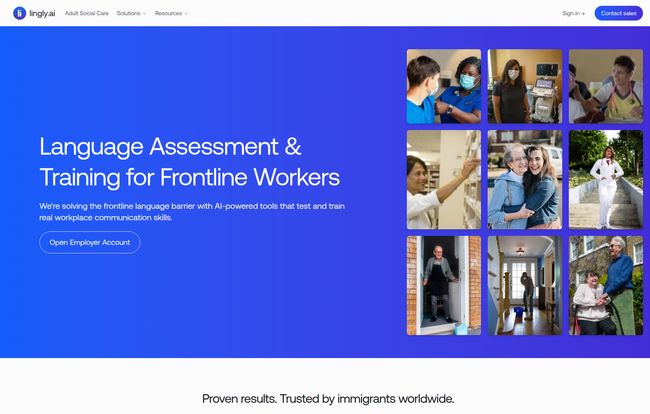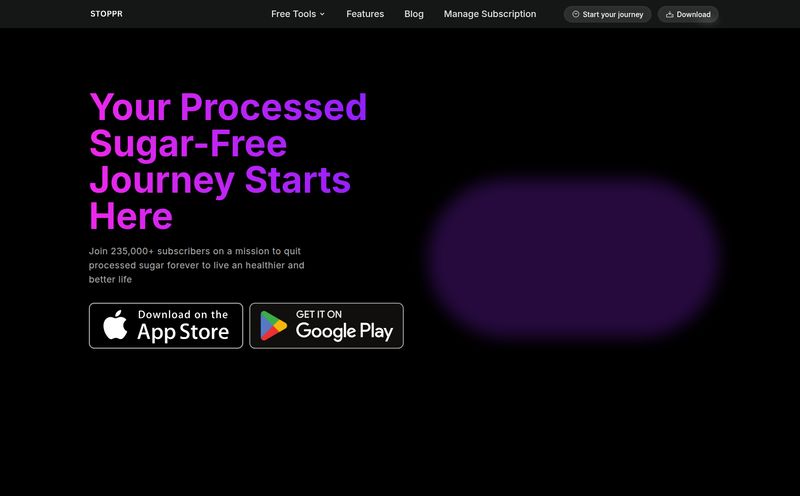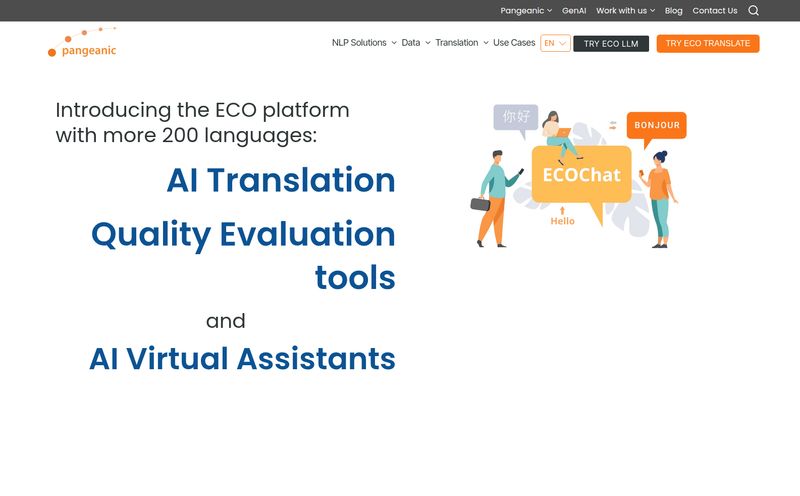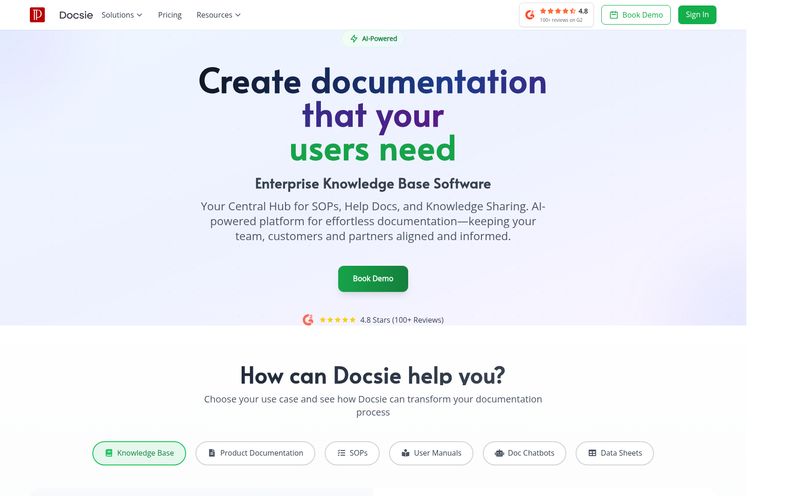For years, I’ve watched the adult social care sector grapple with a problem that everyone sees but few have truly managed to solve. We talk endlessly about staff shortages, the immense pressure on providers, and the increasing reliance on incredible international talent to care for our most vulnerable. And I’m so glad we do. But there’s a critical piece of the puzzle we often gloss over: the communication gap.
It's not just about having a certificate that says you can speak English. It’s about being able to understand a resident with a thick regional accent who’s trying to explain their pain. It’s about knowing the right, gentle way to ask if someone needs help with personal care. It's about confidence. And honestly, the traditional methods just haven't been cutting it. That’s why when I stumbled across a platform called lingly.ai, I felt a flicker of real excitement. This felt... different.
The Elephant in the Room: Why Standard English Tests Fail Care Workers
I've been banging this drum for a while. Acing an IELTS exam is a massive achievement, no question. But it doesn't mean you're ready for the day-to-day reality of a UK care home. The language of academia is a world away from the language of empathy, of quick-fire instructions during an emergency, or of just having a cup of tea and a chat with someone who's lonely.
The folks at Lingly seem to get this on a fundamental level. Their website points out that passing a generic test doesn’t equate to workplace fluency. And they’re dead right. We’ve been trying to fit a square peg into a round hole, pushing fantastic, capable carers through a system that prepares them for an essay but not for a real, human conversation about a resident's well-being. The result? Frustration, misunderstandings, and a feeling of isolation for both the carer and the person they're looking after. It’s a recipe for burnout.
According to a 2023 report from Skills for Care, the staff turnover rate in adult social care in England was a staggering 28.3%. That’s nearly one in three people leaving their job. While there are many reasons for this, communication stress is a huge, often unspoken, contributor.
So, What Exactly is Lingly.ai?
At its core, lingly.ai is an AI-powered language platform, but calling it just that feels like a disservice. It's not another Duolingo clone designed to teach you how to order a coffee in Paris. This is a precision tool, a scalpel designed for the specific challenges faced by frontline workers, particularly in adult social care.

Visit lingly.ai
And here’s the part that really got my attention: it was 'Built by immigrants, for immigrants.' That's not just a slick marketing line. It signals a deep, lived understanding of the problem. This wasn’t cooked up in a boardroom by people who’ve never faced a language barrier themselves. It comes from a place of genuine experience, and that shines through in its design and focus. It’s about building confidence, not just vocabulary.
A Closer Look at The Lingly Toolkit
So how does it actually work? Lingly isn't just one thing; it's a multi-pronged approach to the communication problem. Think of it as a complete support system for international staff.
The Language Screening Feature
This is the starting block. Before you can fix a problem, you need to properly diagnose it. Lingly's language screening goes beyond a simple pass/fail. It assesses a carer's ability to handle real workplace scenarios. It identifies the specific areas where they might struggle, not with grammar, but with practical application. This gives care providers a clear picture of who needs what kind of support, allowing them to be proactive rather than reactive.
The Conversation Helper
I absolutely love this idea. The Conversation Helper is like a safety net. It’s a real-time tool that can help a carer find the right words in a specific, immediate situation. Imagine a new carer is with a resident who seems distressed but can't articulate why. Instead of panicking, they can use this tool to quickly find and practice key phrases. It’s less like a dictionary and more like having a senior mentor whispering in your ear. The confidence boost this must provide is immeasurable.
The Personalised Language Training
This is the long-term solution. Based on the initial screening and ongoing performance, Lingly creates personalised training modules. Forget 'the cat sat on the mat.' We're talking about modules focused on 'Understanding Medication Schedules,' 'Responding to Falls,' or 'Communicating with Residents with Dementia.' It's practical, relevant and directly applicable to their next shift. It even offers native language support, giving explanations in the user's own language to ensure they truly grasp the concepts. This is how you build lasting fluency and competence.
The Real-World Impact: More Than Just Words
A tool like this has ripple effects that go far beyond just learning a few phrases. For care providers, the return on investment isn't just about better English skills; it’s about the core metrics of the business.
First, there's the obvious enhancement in care quality. Clearer communication means fewer errors, a better understanding of a resident’s needs, and stronger, more trusting relationships. This is the stuff that CQC inspectors look for—the evidence of truly person-centered care.
Then there's the massive issue of staff retaention. When you invest in your staff, when you give them tools that reduce their daily stress and help them succeed, they are more likely to stay. A carer who feels confident and supported is a carer who will build a career with you, not just treat the job as a stepping stone. Reducing that 28% turnover rate by even a few points could save an organization thousands in recruitment and training costs. It just makes good business sense.
Ultimately, it’s about dignity. For the carer, it's the dignity of being able to perform their job to the best of their ability. For the resident, it’s the dignity of being understood and cared for by someone who can connect with them on a human level.
The Practicalities: Investment and Pricing
Okay, let's address the bottom line. Lingly.ai isn't a free app, and it shouldn't be. It's a professional B2B tool. The website doesn't have a public pricing page, which is typical for platforms that offer tailored solutions for organizations. You'll need to get in touch with them for a quote based on the size of your team.
Some might see this as an upfront cost. I see it as an investment. How much does it cost to recruit and train a new carer when one leaves due to communication-related stress? What's the cost of a serious incident caused by a misunderstanding? When you frame it that way, a tool like this starts to look very, very reasonable. Of course, its effectiveness hinges on consistent use. It's not a magic wand you can wave over your workforce. It requires engagement from both the staff and the management to truly embed it in your culture.
My Final Take
Look, no single tool can solve all the challenges in the adult social care sector. But Lingly.ai is one of the most intelligent, thoughtfully designed solutions I've seen for a very specific, very painful problem. It's targeted, it's built from a place of authenticity, and it focuses on the right things: practical skills, confidence, and human connection.
For care providers who are serious about improving care quality and tackling the staff retention crisis, this is something you should be looking at. Seriously. It’s a move away from just ticking a box for 'English proficiency' and toward a genuine culture of communication and support.
Frequently Asked Questions about Lingly.ai
- Who is Lingly.ai for?
- It's primarily designed for adult social care providers in the UK who employ international staff. However, their platform is also tailored for other frontline sectors like customer service, hospitality, and retail where clear communication is essential.
- How is Lingly.ai different from Duolingo or other language apps?
- The difference is specialization. General apps teach you conversational language for travel or social situations. Lingly.ai teaches you job-specific language for professional scenarios in the care sector, making it directly relevant to a user's daily work life.
- Is Lingly.ai difficult to implement?
- Like any new system, there will be an implementation process. However, the platform is designed to be user-friendly. The initial investment in setup and training is intended to solve a much larger, more costly problem down the line.
- What is the pricing for Lingly.ai?
- Lingly.ai uses a customized pricing model. They don't list standard prices because the needs of a small care home are different from a large care group. You'll need to contact them directly for a quote tailored to your organization.
- Does it replace the need for formal ESOL classes?
- I'd say it complements them perfectly. ESOL classes provide a great foundation in grammar and general vocabulary. Lingly builds on that foundation with the practical, on-the-job communication skills that are often missed in a traditional classroom setting.
Conclusion
In a sector that’s often stretched thin, finding tools that offer a genuine return on investment—not just financially, but in human terms—is rare. Lingly.ai appears to be one of those rare finds. By tackling the language barrier head-on with a solution that is both technologically smart and deeply human, it offers a credible path toward better care, happier staff, and a more connected care environment. And in this industry, that’s about as valuable as it gets.
Reference and Sources
- Lingly.ai Official Website
- Skills for Care: The state of the adult social care sector and workforce in England, 2023
- International English Language Testing System (IELTS) Official Website



